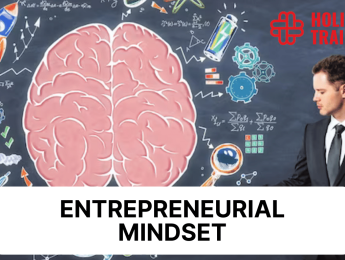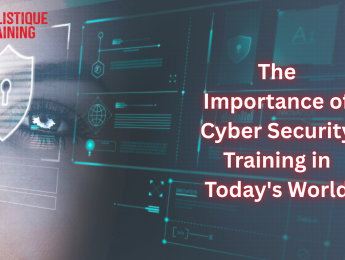- Table of Contents
- Introduction
- What Is an Entrepreneurial Mindset?
- Opportunity-focused
- Growth-oriented
- Risk-tolerant
- Resourceful
- Resilient
- Action-oriented
- Adaptive
- 7 Reasons Why an Entrepreneurial Mindset Is Important
- Embracing Change
- Identifying Opportunities
- Innovation and Problem Solving
- Taking Initiative
- Persistence and Resilience
- Continuous Learning
- Creating Value
- How to Develop an Entrepreneurial Mindset
- 1- Adopt a Growth Mindset
- 2- Seek Inspiration and Role Models
- 3- Embrace Failure and Learn from It
- 4- Foster a Curious Mind
- 5- Develop a Bias for Action
- 6- Network and Collaborate
- 7- Embrace Continuous Learning
- 10 Characteristics for Becoming a Successful Entrepreneur
- 1. Passion and Vision
- 2. Self-Confidence
- 3. Resilience and Perseverance
- 4. Adaptability
- 5. Strong Work Ethic
- 6. Effective Communication
- 7. Strategic Thinking
- 8. Financial Acumen
- 9. Decision-Making Skills
- 10. Team Building and Leadership
- The Role of Technology in Shaping Entrepreneurial Opportunities
- Technological Advancements as Opportunity Catalysts
- E-Commerce and the Democratisation of Business
- Harnessing Artificial Intelligence for Innovation
- Blockchain and Decentralised Opportunities
- Mobile Technology and Accessibility
- Cybersecurity Ventures and the Protection of Entrepreneurial Ventures
- Technology-driven Market Research and Customer Insights
- Remote Collaboration and Virtual Entrepreneurship
- The Perils and Pitfalls of an Entrepreneurial Mindset
- 1. Emotional Rollercoaster
- 2. Fear of Failure
- 3. Balancing Risk and Caution
- 4. Work-Life Integration
- 5. Financial Uncertainty
- 6. Overcoming Rejection and Criticism
- 7. Continuous Pressure to Innovate
- 8. Managing Rapid Change
- 9. Loneliness and Decision-making Burden
- 10. Striving for Perfection
- Conclusion
Introduction
Developing an entrepreneurial mindset is becoming increasingly essential in a rapidly changing world where innovation and adaptability are key. Whether you're starting your own business, working in a dynamic organisation, or pursuing personal growth, embracing entrepreneurial thinking can pave the way for success. In this blog post, we'll explore the definition of entrepreneurial thinking, its importance, how to cultivate it, and the key characteristics that can help you become a successful entrepreneur.
What Is an Entrepreneurial Mindset?
An entrepreneurial mindset refers to a way of thinking and approaching situations that is characterised by a set of unique attitudes and behaviours. It is a mindset that thrives on identifying and seizing opportunities, taking calculated risks, and embracing challenges. Here are the key aspects of an entrepreneurial mindset:
Opportunity-focused
An entrepreneurial mindset is not just a set of behaviours; it's a way of thinking that thrives on identifying and seizing opportunities. Entrepreneurs possess the innate ability to recognise potential business ventures even in the face of adversity. They view challenges as stepping stones to success, constantly seeking innovative ways to create value. This opportunity-focused approach sets the stage for a mindset that embraces change and innovation.
Growth-oriented
Central to entrepreneurial thinking is a growth mindset. Entrepreneurs understand that continuous learning and personal development are the cornerstones of success. Rather than viewing failures as setbacks, they see them as invaluable opportunities for growth. This mindset fosters resilience, enabling entrepreneurs to bounce back from challenges with renewed determination.
Risk-tolerant
Successful entrepreneurs are comfortable with taking risks. They comprehend that calculated risks can lead to great rewards and aren't deterred by the fear of failure. Resourcefulness is another hallmark of an entrepreneurial mindset. Entrepreneurs leverage creativity and innovation to find solutions, often with limited resources. They excel at tapping into their networks and exploring unconventional avenues to achieve their goals.
Resourceful
Entrepreneurs possess resourcefulness. They use creativity and innovation to find solutions, often with limited resources. They are skilled at leveraging their networks and finding unconventional ways to achieve their goals.
Resilient
Entrepreneurial thinking is underpinned by resilience. Entrepreneurs understand that setbacks and obstacles are part of the journey and remain persistent and determined in the face of challenges.
Action-oriented
Entrepreneurs are driven by action. They don't merely dream but take tangible steps to turn their ideas into reality. They possess a bias toward action and are not afraid to experiment and iterate.
Adaptive
Entrepreneurs possess a keen sense of adaptability, allowing them to navigate through the ever-changing business landscape. They not only embrace change but are also quick to adjust their strategies to align with new market trends and emerging opportunities. This adaptability is a key factor in the sustained success of entrepreneurial ventures.
7 Reasons Why an Entrepreneurial Mindset Is Important
Extensive research highlights the immense value of an entrepreneurial mindset in multiple areas, including its high regard by employers, its positive impact on educational attainment and performance, as well as its pivotal role in fostering the creation of new businesses. Here are other compelling reasons why cultivating this mindset is crucial for success in today's rapidly evolving world:
Embracing Change
In today's dynamic world, change is constant. An entrepreneurial mindset equips individuals to adapt and thrive in rapidly evolving environments. This adaptability is a competitive advantage, ensuring entrepreneurs can navigate uncertainties and capitalise on emerging trends.
Identifying Opportunities
Recognising opportunities that others might overlook is a hallmark of entrepreneurial thinking. This gives individuals with an entrepreneurial mindset a distinct advantage in various aspects of life, from business to personal development. Entrepreneurs can position themselves ahead of the curve through keen observation and a proactive mindset.
Innovation and Problem Solving
Entrepreneurs possess a natural inclination toward innovation and creative problem-solving. Their mindset encourages out-of-the-box thinking, pushing individuals to explore unconventional solutions. This innovative approach benefits entrepreneurs in their ventures and contributes to the broader landscape of industry advancements.
Taking Initiative
Having an entrepreneurial mindset empowers individuals to take charge of their own destiny. Instead of waiting for opportunities to come their way, they proactively seek and create them. This initiative is a driving force that propels individuals towards their goals, fostering a sense of control over their own path.
Persistence and Resilience
Building resilience is crucial for navigating the ups and downs of entrepreneurial endeavours. An entrepreneurial mindset instils the resilience needed to bounce back from failures and setbacks with renewed determination. This ability to persevere through challenges is a defining factor in entrepreneurs' long-term success.
Continuous Learning
Entrepreneurs are lifelong learners. Cultivating an entrepreneurial mindset encourages individuals to embrace continuous learning, fostering personal and professional growth. This commitment to learning ensures that entrepreneurs stay ahead of industry trends and adapt to the evolving landscape.
Creating Value
Entrepreneurial thinking fosters a mindset of value creation. Whether through a business venture or contributions to an organisation, an entrepreneurial mindset enables individuals to make a positive impact. This focus on creating value is beneficial for personal success and contributes to the betterment of society.
How to Develop an Entrepreneurial Mindset
Developing an entrepreneurial mindset is a journey that involves self-reflection, learning, and practice. Here are some strategies to help you cultivate this mindset:
1- Adopt a Growth Mindset
Adopting a growth mindset is at the core of developing an entrepreneurial mindset. This philosophy revolves around the belief that dedication and hard work can develop abilities and intelligence. Entrepreneurs view challenges not as insurmountable obstacles but as opportunities for growth and learning. Embracing a growth mindset sets the stage for resilience and adaptability, essential elements of entrepreneurial thinking.
2- Seek Inspiration and Role Models
Surrounding oneself with inspiring entrepreneurs and individuals who exemplify entrepreneurial thinking is a strategic move. Learning from the experiences of those who have navigated the challenges of entrepreneurship provides valuable insights. Exposure to diverse perspectives and success stories broadens one's understanding of the mindset and approach contributing to success. Role models serve as beacons of inspiration, guiding individuals through their own entrepreneurial journey.
3- Embrace Failure and Learn from It
Failure is an integral part of the entrepreneurial journey. Instead of viewing it as a setback, individuals with an entrepreneurial mindset perceive failure as a valuable learning opportunity. This strategy involves a shift in perspective—analysing failures, extracting lessons, and using them to inform and improve future endeavours. Embracing failure builds resilience and cultivates a mindset that values the iterative nature of success.
4- Foster a Curious Mind
Cultivating curiosity is fundamental to entrepreneurial thinking. A curious mind constantly seeks to explore new ideas, ask questions, and stay updated with industry trends. Curiosity fuels innovation, enabling individuals to uncover new opportunities and approach challenges with a fresh perspective. This strategy involves actively seeking out information, staying curious, and fostering a mindset that values continuous learning.
5- Develop a Bias for Action
Overcoming analysis paralysis is a critical step in developing an entrepreneurial mindset. This strategy encourages individuals to develop a bias for action—taking decisive steps, starting small, testing ideas, and iterating based on feedback. Action is the bridge between ideas and reality, and entrepreneurs understand the importance of momentum in achieving their goals. This strategy involves breaking down large goals into actionable steps and embracing a mindset that values progress over perfection.
6- Network and Collaborate
Building a robust network of like-minded individuals, mentors, and experts is a strategic move in developing an entrepreneurial mindset. Collaboration provides valuable insights, resources, and opportunities. Interacting with a diverse network allows for exposure to different perspectives, challenges, and potential solutions. This strategy involves actively seeking out opportunities to connect with others, fostering relationships, and embracing a collaborative mindset.
7- Embrace Continuous Learning
Investing in personal and professional development is an ongoing commitment to developing an entrepreneurial mindset. This strategy involves attending workshops, conferences, and training programs related to entrepreneurship, leadership, and skill-building. Staying curious and continuously expanding one's knowledge base ensures that individuals remain adaptable in the face of evolving challenges. This commitment to learning is a cornerstone of entrepreneurial thinking. Developing an entrepreneurial mindset is not a one-time event but a continuous and intentional journey. These strategies provide a roadmap for cultivating the attitudes and behaviours that characterise successful entrepreneurs. By adopting a growth mindset, seeking inspiration, embracing failure, fostering curiosity, developing a bias for action, building a network, and embracing continuous learning, individuals can navigate the path toward entrepreneurial success with resilience, adaptability, and a passion for continuous growth.
10 Characteristics for Becoming a Successful Entrepreneur
While developing an entrepreneurial mindset is crucial, certain characteristics can greatly enhance your chances of success. Here are ten key traits often found in successful entrepreneurs:
1. Passion and Vision
An unwavering passion for their ideas drives successful entrepreneurs. This passion serves as the fuel that propels them forward, even in the face of challenges. Beyond passion, having a clear vision is equally crucial. Entrepreneurs possess a well-defined picture of their goals, allowing them to stay focused and navigate their ventures with purpose.
2. Self-Confidence
Believing in oneself is a fundamental trait of successful entrepreneurs. The ability to take risks and make bold decisions is rooted in self-confidence. This trait empowers entrepreneurs to navigate uncertainties with conviction, inspiring confidence in others—be it team members, investors, or stakeholders.
3. Resilience and Perseverance
Entrepreneurship is a journey marked by numerous challenges and setbacks. Successful entrepreneurs possess a high level of resilience, allowing them to bounce back from failures with unwavering determination. Perseverance through tough times is a key factor in achieving long-term success.
4. Adaptability
In the dynamic landscape of entrepreneurship, adaptability is a critical skill. Successful entrepreneurs can pivot when necessary, adjusting their strategies to changing circumstances. This adaptability ensures relevance in a constantly evolving business environment.
5. Strong Work Ethic
Entrepreneurship demands a strong work ethic. Successful entrepreneurs are known for their dedication to hard work and willingness to put in the necessary effort to achieve their goals. This work ethic is the driving force behind the sustained effort required for entrepreneurial success.
6. Effective Communication
Communication is a cornerstone of successful entrepreneurship. Entrepreneurs must be skilled communicators, able to articulate their ideas effectively. Whether conveying a vision to team members or pitching to investors, effective communication is essential for building strong relationships and garnering support.
7. Strategic Thinking
Entrepreneurs possess the ability to think strategically. They analyse market trends, identify opportunities, and develop effective business strategies. This strategic thinking is instrumental in making informed decisions that contribute to the success of their ventures.
8. Financial Acumen
Understanding the financial aspects of business is crucial for entrepreneurial success. Entrepreneurs need to be proficient in budgeting, forecasting, and managing cash flow to ensure the financial health of their ventures. Financial acumen is a key skill in navigating the economic aspects of entrepreneurship.
9. Decision-Making Skills
Entrepreneurs often find themselves making tough decisions under uncertain conditions. Successful entrepreneurs exhibit strong decision-making abilities grounded in critical thinking and analysis. The ability to weigh options, assess risks, and make informed decisions is essential for navigating the complexities of entrepreneurship.
10. Team Building and Leadership
Successful entrepreneurs excel in team building and leadership. They can assemble a talented team, motivate team members, and lead them towards a common vision. Effective leadership is a cornerstone of entrepreneurial success, ensuring a cohesive and motivated team working towards shared goals.
In essence, these characteristics are not isolated traits but interwoven elements that collectively contribute to an entrepreneur's success. The combination of passion, self-confidence, resilience, adaptability, a strong work ethic, effective communication, strategic thinking, financial acumen, decision-making skills, and leadership creates a formidable entrepreneurial mindset that can weather challenges and seize opportunities for success. Aspiring entrepreneurs can use these traits as a guide, understanding that cultivating and embodying these characteristics is a continuous journey of growth and development.
The Role of Technology in Shaping Entrepreneurial Opportunities
Technology integration has become synonymous with innovation, reshaping industries, and opening new avenues for entrepreneurial endeavours in the contemporary landscape. Let’s explore the symbiotic relationship between technology and entrepreneurial opportunities, shedding light on how advancements in the digital realm are not just tools for entrepreneurs but catalysts for transformative change.
Technological Advancements as Opportunity Catalysts
The rapid pace of technological advancements serves as a fertile ground for entrepreneurial opportunities. Innovations in areas such as artificial intelligence, blockchain, and the Internet of Things (IoT) are disrupting traditional industries and creating unprecedented possibilities. Entrepreneurs with a keen eye for technological trends can identify gaps in the market and leverage these advancements to address emerging needs, paving the way for groundbreaking ventures.
E-Commerce and the Democratisation of Business
The rise of e-commerce has revolutionised how businesses operate, providing entrepreneurs unprecedented access to global markets. Platforms like Amazon, Shopify, and Etsy have democratised the business landscape, allowing small entrepreneurs to reach audiences worldwide. The ease of setting up online storefronts, coupled with digital payment solutions, has lowered barriers to entry, empowering individuals to turn their ideas into profitable ventures with minimal upfront costs.
Harnessing Artificial Intelligence for Innovation
Artificial intelligence (AI) is a transformative force entrepreneurs harness to drive innovation across various sectors. Machine learning algorithms, natural language processing, and computer vision enable businesses to automate processes, gain insights from vast datasets, and create personalised user experiences. Entrepreneurs with a tech-savvy mindset can leverage AI to streamline operations, enhance product offerings, and gain a competitive edge in the market.
Blockchain and Decentralised Opportunities
Blockchain technology has disrupted traditional notions of trust and transparency, opening up new entrepreneurial opportunities. Entrepreneurs exploring blockchain can create decentralised applications (DApps), launch cryptocurrency-based ventures, or explore novel ways of securing and validating transactions. The decentralised nature of blockchain eliminates the need for intermediaries, offering entrepreneurs the chance to innovate in sectors like finance, supply chain, and healthcare.
Mobile Technology and Accessibility
The ubiquity of smartphones and mobile applications has transformed how businesses interact with consumers. Entrepreneurs can capitalise on this by developing mobile-centric solutions, reaching customers in real-time, and providing seamless user experiences. Mobile technology has also facilitated the rise of the gig economy, allowing individuals to monetise skills and services through platforms like Uber, TaskRabbit, and Fiverr.
Cybersecurity Ventures and the Protection of Entrepreneurial Ventures
As entrepreneurs increasingly rely on digital platforms and data, the importance of cybersecurity has risen exponentially. The surge in cyber threats poses risks to entrepreneurial ventures, making the role of cybersecurity paramount. Entrepreneurs need to harness technology for innovation and prioritise the protection of their digital assets. This involves adopting robust cybersecurity measures, ensuring data privacy, and staying vigilant against evolving cyber threats.
Technology-driven Market Research and Customer Insights
Entrepreneurs can leverage technology for sophisticated market research and gain valuable customer insights. Big data analytics, social media monitoring, and online surveys are tools that provide entrepreneurs with a deep understanding of market trends, consumer preferences, and areas of opportunity. This data-driven approach allows entrepreneurs to make informed decisions, tailor their products or services to meet customer needs, and stay ahead of the competition.
Remote Collaboration and Virtual Entrepreneurship
Advancements in communication technology have facilitated remote collaboration, giving rise to virtual entrepreneurship. Entrepreneurs can assemble teams from around the globe, tapping into diverse skill sets and perspectives. Virtual entrepreneurship also enables the creation of digital products and services that transcend geographical boundaries, fostering a borderless approach to business.
In summary, the role of technology in shaping entrepreneurial opportunities is dynamic and multifaceted. Entrepreneurs who embrace technological advancements position themselves for success in the digital age and contribute to the ongoing evolution of industries. By staying attuned to technological trends, harnessing digital tools for innovation, and navigating the challenges of the digital frontier, entrepreneurs can unlock a world of possibilities and shape the future of business.
The Perils and Pitfalls of an Entrepreneurial Mindset
While the entrepreneurial mindset is a powerful driver of innovation and success, it does not come without its challenges. In this section, we explore the potential pitfalls and difficulties individuals may encounter as they cultivate and embody the entrepreneurial mindset.
Challenge | Description |
Emotional Rollercoaster | Entrepreneurs experience highs and lows driven by their passion and vision, leading to moments of exhilaration and periods of stress, anxiety, and self-doubt. Resilience and self-awareness are essential. |
Fear of Failure | The entrepreneurial mindset promotes learning from failure, but fear of failing can cause anxiety and reluctance to take necessary risks. Overcoming this fear involves seeing failure as a stepping stone. |
Balancing Risk and Caution | Entrepreneurs must balance risk-taking and caution. Impulsive risks may cause setbacks, while excessive caution leads to missed opportunities. Risk assessment is crucial. |
Work-Life Integration | The passion for entrepreneurship may create work-life imbalance, affecting relationships and well-being. Time management and boundary-setting are critical for balance. |
Financial Uncertainty | Financial challenges like cash flow management, funding, and economic fluctuations are constant concerns. Entrepreneurs need financial acumen and resilience. |
Overcoming Rejection and Criticism | Entrepreneurs face rejection and criticism from investors, customers, and peers. Developing thick skin and using criticism constructively helps maintain focus on goals. |
Continuous Pressure to Innovate | The demand for constant innovation to stay competitive can lead to burnout. Balancing creativity with reflection and rejuvenation is essential. |
Managing Rapid Change | Entrepreneurs must adapt to rapid changes in markets, technologies, and consumer preferences. Staying agile and pivoting when needed ensures success. |
Loneliness and Decision-making Burden | Entrepreneurship can be isolating, with decision-making burdens leading to feelings of loneliness. Building a support network and seeking mentorship are key strategies. |
Striving for Perfection | The desire for perfection can cause overthinking and delays. Embracing progress over perfection helps entrepreneurs take timely actions. |
Table: The Challenges Facing Entrepreneurial Mindset
1. Emotional Rollercoaster
Highs and lows mark the entrepreneurial journey, and individuals with an entrepreneurial mindset often find themselves on an emotional rollercoaster. The intensity of the passion and vision that fuels entrepreneurship can lead to moments of exhilaration but may also result in periods of stress, anxiety, and self-doubt. Navigating these emotional extremes requires resilience and self-awareness.
2. Fear of Failure
While an entrepreneurial mindset encourages learning from failure, the fear of failure itself can be a significant hurdle. The pressure to succeed and the inherent risk-taking nature of entrepreneurship can create anxiety and reluctance to take necessary risks. Overcoming this fear requires a mindset shift, viewing failure not as an endpoint but as a stepping stone toward improvement and growth.
3. Balancing Risk and Caution
Entrepreneurs are known for their risk tolerance, but navigating the delicate balance between taking risks and exercising caution is an ongoing challenge. Taking overly impulsive risks can lead to setbacks, while excessive caution may result in missed opportunities. Developing the discernment to assess risks effectively is crucial for maintaining a steady course in the face of uncertainty.
4. Work-Life Integration
The passion that propels entrepreneurs can sometimes lead to an imbalance between work and personal life. The all-encompassing nature of entrepreneurial endeavours may strain relationships and affect mental and physical well-being. Striking a balance between pursuing one's professional goals and maintaining a healthy personal life is an ongoing challenge that requires intentional time management and boundary-setting.
5. Financial Uncertainty
Entrepreneurial ventures often involve financial uncertainty, especially in the initial stages. Managing cash flow, securing funding, and weathering economic fluctuations are constant concerns. Entrepreneurs must develop financial acumen and resilience to navigate the financial challenges that may arise during the journey.
6. Overcoming Rejection and Criticism
Entrepreneurs face rejection and criticism as a natural part of the process. Whether it's rejection from investors, customers, or peers, dealing with setbacks and negative feedback can be emotionally challenging. Developing a thick skin and extracting constructive insights from criticism is essential for maintaining momentum and staying focused on long-term goals.
7. Continuous Pressure to Innovate
Innovation is a cornerstone of entrepreneurship, but the pressure to constantly generate new ideas and stay ahead of the competition can be demanding. The relentless pursuit of innovation may lead to burnout if not managed carefully. Entrepreneurs must strike a balance between fostering creativity and allowing for periods of reflection and rejuvenation.
8. Managing Rapid Change
The fast-paced nature of the business landscape, especially in the era of technological advancement, introduces a constant need for adaptation. Entrepreneurs with an entrepreneurial mindset must cope with rapid changes in markets, technologies, and consumer preferences. Staying agile and pivoting when necessary is vital for sustained success.
9. Loneliness and Decision-making Burden
Entrepreneurship can be a solitary journey, especially for those leading startups or small businesses. Decision-making, often shouldered by the entrepreneur, can lead to feelings of isolation and an overwhelming burden. Building a support network and seeking mentorship becomes critical strategies for addressing loneliness and decision-making challenges.
10. Striving for Perfection
Pursuing excellence is a commendable trait, but the desire for perfection can become a stumbling block. Entrepreneurs with an entrepreneurial mindset may be caught in the trap of overthinking and overanalyzing, delaying action in the quest for perfection. Overcoming this challenge involves embracing a mindset that values progress over perfection.
In summary, while the entrepreneurial mindset is a potent catalyst for success, acknowledging and addressing the challenges it brings is crucial. Navigating the emotional rollercoaster, overcoming the fear of failure, balancing risk and caution, maintaining work-life integration, managing financial uncertainty, handling rejection and criticism, coping with the pressure to innovate, managing rapid change, addressing loneliness, and avoiding the pursuit of unattainable perfection are all integral aspects of the entrepreneurial journey. Individuals can foster a resilient and sustainable entrepreneurial mindset by recognising and proactively addressing these challenges.
Conclusion
Cultivating an entrepreneurial mindset is a transformative journey that can unlock new opportunities, drive innovation, and propel personal growth. By embracing change, recognising opportunities, and developing key characteristics, you can set yourself on the path to entrepreneurial success. Remember, an entrepreneurial mindset is not limited to starting a business; it is a way of thinking and approaching life with resilience, adaptability, and a passion for continuous growth. So, take the first step, embrace entrepreneurial thinking, and unlock your full potential. The possibilities are limitless.
























